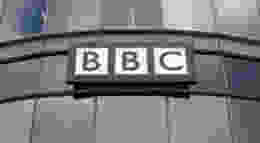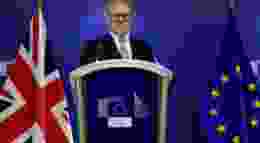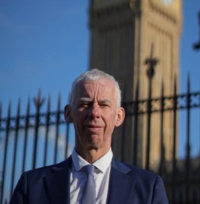
Scotland's wealthy, healthy future lies in the United Kingdom
Punchy and thought provoking, a series of essays under the title Wealthy Nation, Healthy Nation has thrown the spotlight on Scotland and the devolution settlement.
Brainchild of Lord Offord of Garvel, a man with a stellar track record in finance and now politics, the work – produced with the Centre for Policy Studies – is a call to arms to help the Holyrood parliament in Edinburgh deliver on its key task: the betterment of the lives of the people of Scotland.
No serious consideration of matters north of the Border can ignore the independence question. I have long argued that the independence issue is not one purely for Scots, for it matters to every one of us in Britain, regardless of geography or lineage.
The loss of Scotland would leave the UK the poorer, both in direct terms – Scotch whisky and salmon are key UK exports; our nuclear deterrent is based at Faslane on the Clyde, and RAF Lossiemouth is the premier airbase for defending the High North – as well as culturally.
Offord’s essayists put forward a series of ideas for improving the health, wealth and happiness of those of us in Scotland under the aegis of a parliament that has existed for 25 years with not a lot to show for its quarter century.
That failure is down to so much of its time and energy being expended on the independence debate. The SNP have used Holyrood to further their separatist aims; Unionists to defend the oldest and most successful political marriage in the world.
Though the 2014 referendum was supposed to settle the matter for a generation, independence smoulders still – dominating much of Holyrood’s available political bandwidth.
The question today, with Holyrood elections looming next year, is where now?
In his opening reflections, Lord Offord – a man with a huge passion for Scotland and Britain – argues: ‘All parties in Scotland now need to focus, as a matter of urgency, not on the constitution but on those vital economic and public service issues over which Holyrood has control.’
Amen. But, as ever in Scotland where the first item on any agenda is the split, this is not without controversy.

Some of the more muscular Unionists are alarmed this all might mean more powers for Holyrood, and therefore be a mis-step towards independence.
First Minister John Swinney has already lit the fiery cross in the glens, signalling to core SNP support that the election will be another de facto referendum and that a majority of pro-independence MSPs means it’s once more unto the referendum demand.
Mr Swinney is increasingly taking a maximal approach to the powers his devolved administration enjoys.
Though foreign affairs are reserved to Westminster, he has declared a sort of mini embargo on Israel. He has talked of ‘Scottish forces’ joining a peacekeeping force in Ukraine – there are many fine young Scots men and, increasingly, women in uniform but our forces are British.
By refusing to use public money to back defence firms making ordnance, Mr Swinney imperilled the jobs a Rolls-Royce welding centre of excellence would have created, and damaged British security at a time of global peril.
New nuclear power plants should be firing up, but the SNP are Luddites and have used planning laws as an effective veto.
Mr Swinney is using British systems – including the Civil Service, who dutifully tap out papers on what an independent Scotland would look like – against Britain itself.
It’s akin to Charles Stewart Parnell’s Irish Home Rule agitation, and while Mr Swinney is less adroit – more a Poundshop Parnell – he is able to thwart the will of the sovereign UK Parliament.
Wealthy Nation, Healthy Nation could be a blueprint for a better Scotland. Its common-sense premise is that politicians should focus on outcomes, not inputs.
Fine, but we do have a battle on our hands and the Nationalists do not want devolution to succeed as it imperils their end desire: independence.
History teaches long-odds battles are often won after the victor selected the correct ground. In 1307, Robert the Bruce at Glen Trool – in what is now my Galloway constituency – used high ground and a narrow path to defeat a superior force.
So we must fight the separatists not on the constitution, but on the practical. Instead of focusing on their grim record, we must offer voters a vision.
That vision is of a wealthy nation and a healthy nation, thriving not in the ‘confines’ of the United Kingdom but instead to the fore, and comfortable within the British firmament.
Even Bonnie Prince Charlie – who wanted to be King of Britain, not Scotland – might back that.

John Cooper is the Conservative Member of Parliament for Dumfries and Galloway.














